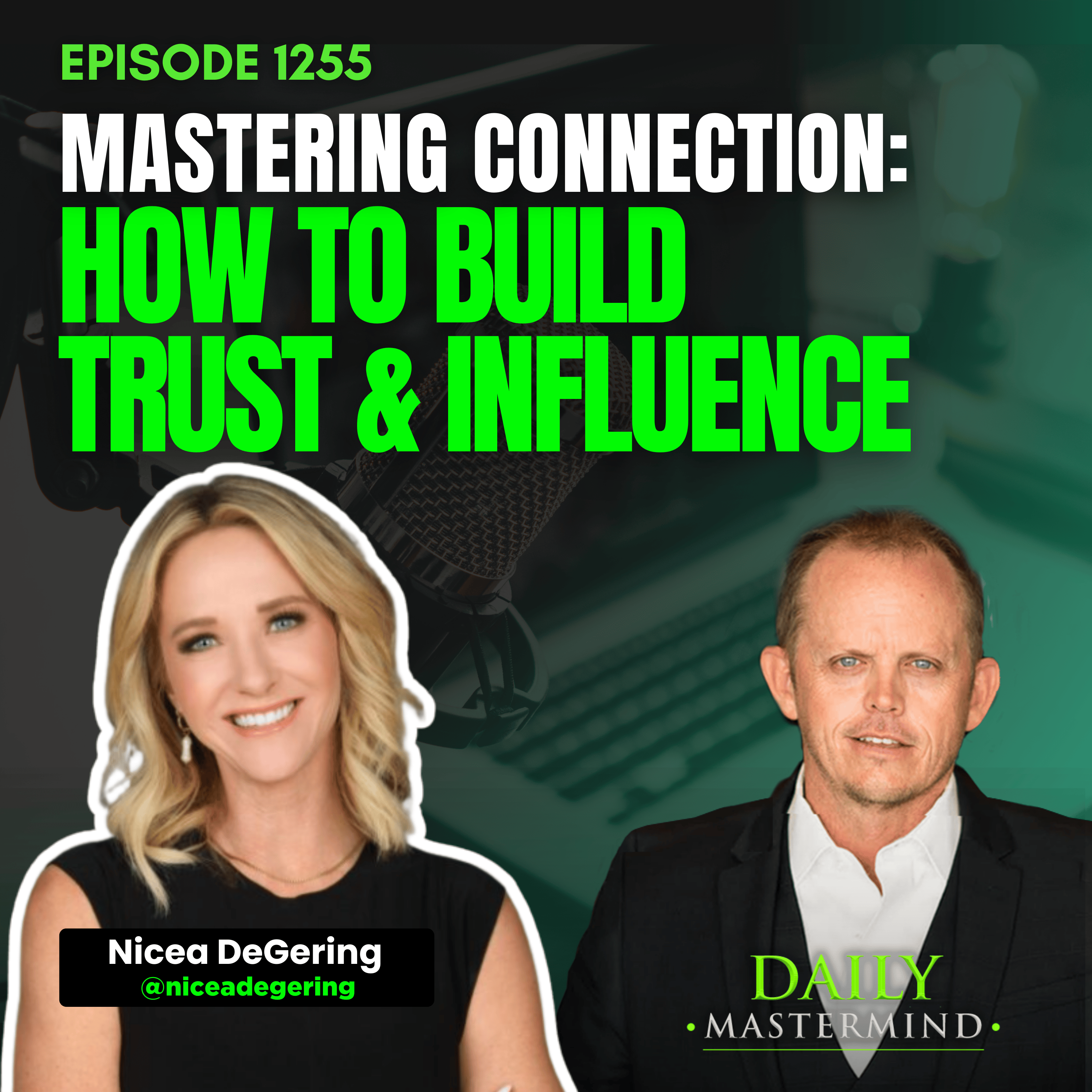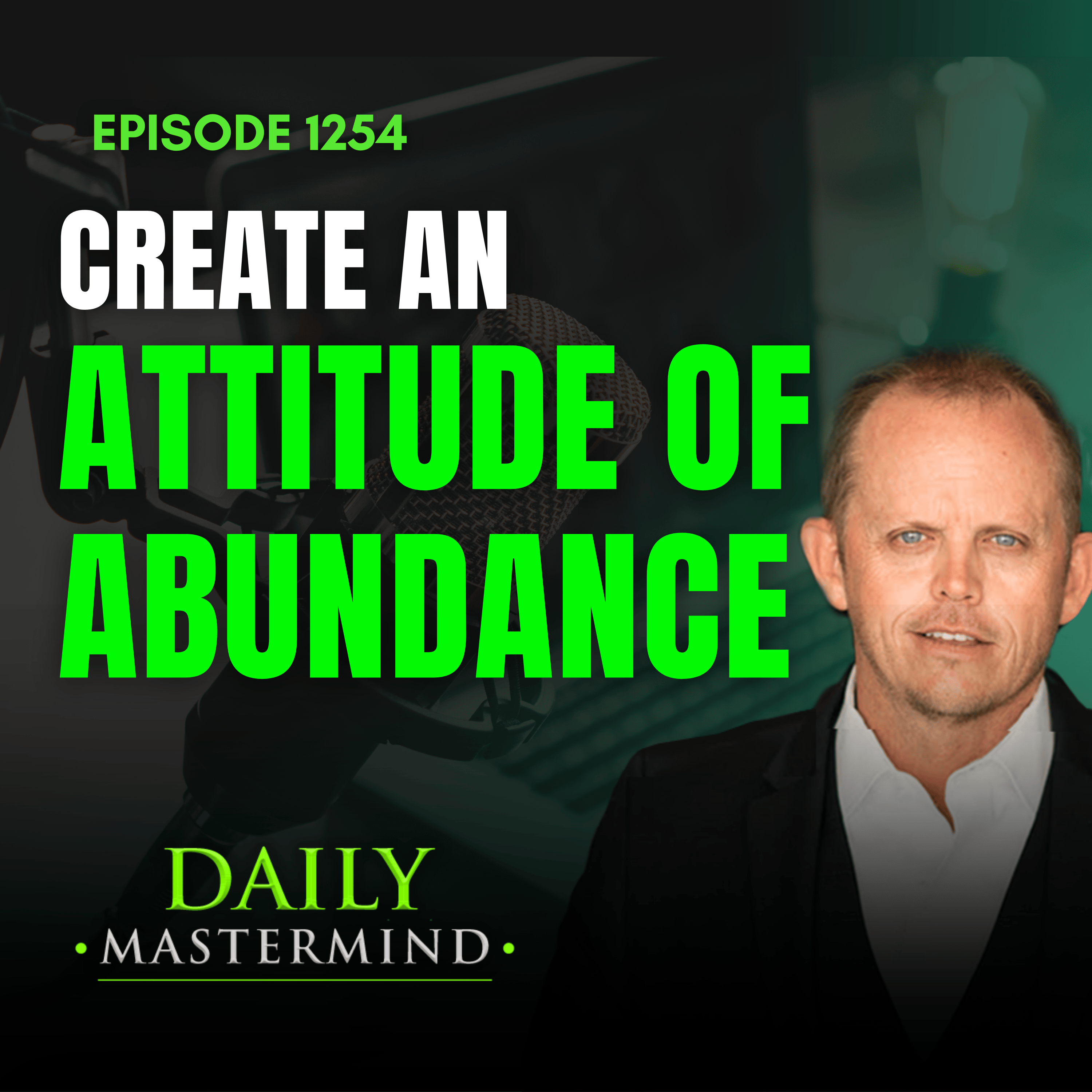
The 7 Habits of Highly Effective People by Stephen R. Covey TB
What if lasting success came down to mastering just a few key principles that shape your thoughts, actions, and outcomes? In this episode, we explore Stephen Covey’s The 7 Habits of Highly Effective People and how you can start applying them today.
The 7 Habits of Highly Effective People by Stephen R. Covey
Welcome back to The Daily Mastermind. Today I want to revisit a classic—one that has shaped personal development for millions of people around the world: The 7 Habits of Highly Effective People by Stephen R. Covey.
This book has sold over 25 million copies in more than 40 languages, and for good reason. Covey didn’t write a book filled with trends or motivational fluff. He built a timeless framework rooted in principle-based living—something that aligns perfectly with what we do here at The Daily Mastermind.
So what I want to do is walk you through the core ideas of the book, share some takeaways, and hopefully inspire you to revisit or explore these habits for the first time. Whether you’re new to it or need a reminder, this is one of those resources that continues to meet you where you are.
The Foundation: Private Victory Before Public Victory
Covey’s philosophy is built around a powerful idea: true effectiveness starts from within.
He explains that before you can achieve “public victory”—success in business, leadership, relationships—you must first develop private victory, or personal mastery. That means your character, mindset, values, and daily choices must become aligned. And that alignment is built on habits.
One of my favorite quotes from the book really captures this: “People can’t live with change if there’s not a changeless core inside them.” In other words, lasting change requires a strong internal foundation—something that doesn’t waver, even when life does.
And this is why Covey emphasizes effectiveness over efficiency. We all want to manage our time better, check more boxes, and get more done—but if the things we’re doing lack meaning, then we’re just moving faster in the wrong direction. The real goal isn’t to get more done—it’s to get the right things done.
Habit 1: Be Proactive
This is where everything begins. Covey teaches that your life is not something that just “happens” to you. Every single day, you’re given the opportunity to choose how you respond, what actions you take, and how you frame your experiences.
Reactive people are tossed around by their environment. They let circumstances or other people dictate how they feel and what they do. Proactive people, on the other hand, take ownership. They understand that there’s always a space—however small—between what happens and how they respond. And it’s in that space where all your power lies.
This habit reminds us that we are not victims. We are responsible. And one of the clearest indicators of whether you’re living reactively or proactively is your language. Phrases like “I can,” “I will,” and “I choose” signal a proactive mindset. While phrases like “I have to,” “I can’t,” or “If only…” reveal a reactive one.
Habit 2: Begin with the End in Mind
If you don’t have a vision for your life, someone else will create one for you. This habit is about defining where you want to go before you start moving.
Covey explains that everything is created twice—first in the mind, then in reality. Just like an architect creates blueprints before building a structure, we need to create a mental blueprint for our lives. That might mean writing a personal mission statement, setting long-term goals, or getting clear on your values.
Without that clarity, it’s easy to drift. But when you begin with the end in mind, your daily decisions start to align with a greater purpose.
Habit 3: Put First Things First
This habit is where vision turns into action. If Habit 1 is about taking responsibility, and Habit 2 is about defining your vision, Habit 3 is where you organize your time, energy, and priorities to bring that vision to life.
Covey encourages us to focus on what’s important, not just what’s urgent. We often get stuck in the trap of reacting to what screams the loudest—emails, texts, emergencies—while neglecting the deeper, meaningful work that shapes our future.
Putting first things first means making time for the things that matter most, even when they’re not urgent. It’s choosing long-term significance over short-term comfort or convenience.
Habit 4: Think Win-Win
In a world that often encourages competition and scarcity, this habit flips the script. Thinking win-win means approaching relationships, business, and life with an abundance mindset.
It’s not about compromising. It’s not about being nice. It’s about creating solutions where everyone benefits—where your success doesn’t come at someone else’s expense.
When you think win-win, you stop seeing life as a zero-sum game. You stop needing to prove your worth by “beating” others. And instead, you start looking for ways to elevate the people around you as you rise.
Habit 5: Seek First to Understand, Then to Be Understood
Most people listen to reply, not to understand. That’s where communication breaks down—especially in leadership, relationships, and negotiations.
Covey challenges us to reverse that. Slow down. Truly listen. Ask better questions. When you lead with empathy and understanding, you build trust. And once trust is established, your ideas land better. Your influence increases. You become more effective in every interaction.
This habit is a game-changer if you take it seriously.
Habit 6: Synergize
Synergy is what happens when one plus one equals more than two. It’s the result of people coming together, bringing their diverse strengths, and creating something greater than the sum of its parts.
Covey reminds us that real synergy requires openness, vulnerability, and trust. It’s not about everyone agreeing—it’s about collaborating to uncover solutions that no one person could have created alone.
This habit is especially powerful in teams and leadership. If you can create a culture where synergy is possible, you multiply potential outcomes.
Habit 7: Sharpen the Saw
This final habit is all about renewal. Growth. Rest. Reflection. Without it, you burn out.
Covey breaks it down into four areas of self-renewal: physical, mental, spiritual, and social. If you’re not taking care of your health, feeding your mind, connecting with your purpose, and nurturing relationships—you’ll start to wear down.
Sharpening the saw isn’t about taking time off from growth. It’s part of the growth. It’s the fuel that keeps you moving forward sustainably.
Final Thoughts: Habits That Shape Your Destiny
There’s a reason this book has stood the test of time. The 7 Habits aren’t just strategies—they’re a way of life. They’re timeless principles that can shape your character, your results, and ultimately, your destiny.
Let me recap them for you one more time:
- Be proactive
- Begin with the end in mind
- Put first things first
- Think win-win
- Seek first to understand, then to be understood
- Synergize
- Sharpen the saw
If you want real, lasting growth, these habits will give you the structure to make it happen.
I encourage you to revisit the book, reflect on where you are with each habit, and start building the small daily practices that lead to real transformation. This isn’t about perfection. It’s about progress—rooted in principle, guided by vision, and fueled by action.
That’s the message for today. Thanks for tuning in. This is George Wright III, and I’ll talk to you tomorrow.

.png)
.png)

